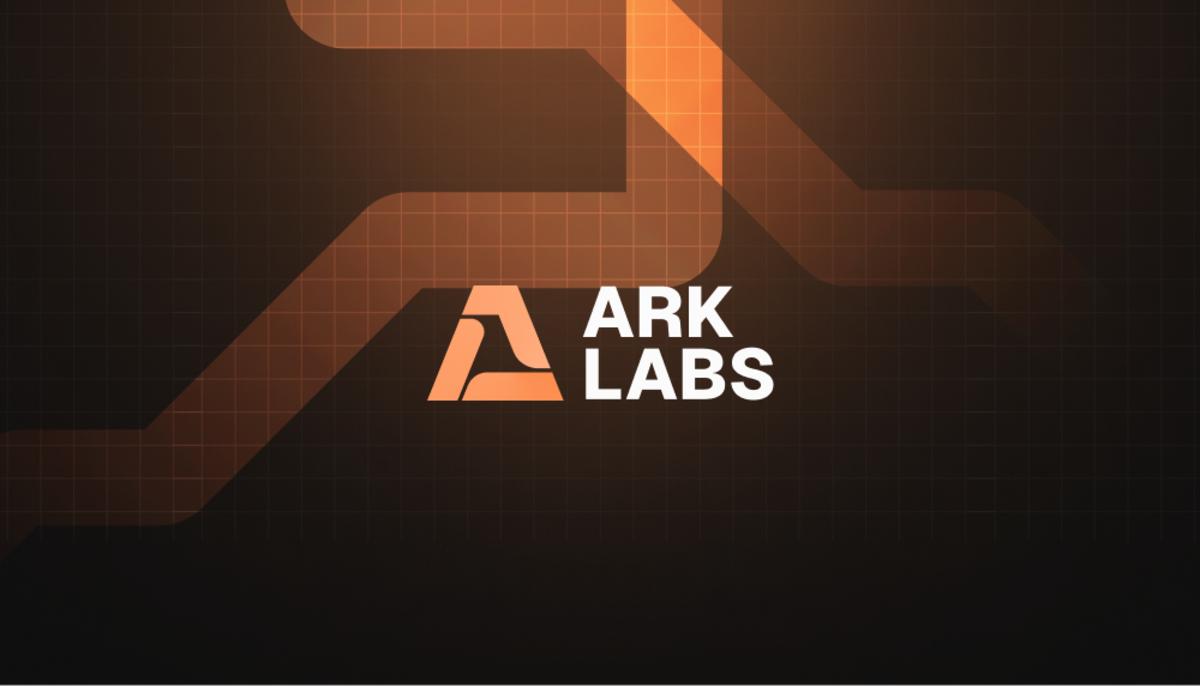Month: August 2024
Hong Kong Spot Bitcoin ETFs Saw Highest Inflows in a Month
Hong Kong‘s spot Bitcoin ETFs saw their largest inflow of funds in over a month today, highlighting growing Asian interest in Bitcoin investment vehicles.
JUST IN: 🇭🇰 Hong Kong #Bitcoin ETFs saw $15 million in inflows today, the highest in a month.
Slowly and steadily 🙌 pic.twitter.com/Q83tjbS0ML
— Bitcoin Magazine (@BitcoinMagazine) August 22, 2024
The ChinaAMC Bitcoin ETF took in 274 Bitcoin worth around $15 million on August 22nd, its biggest single day of inflows since July 12th. The other two Hong Kong spot Bitcoin ETFs – Bosera Hashkey and Harvest saw no flows today.
Hong Kong approved its first three spot Bitcoin ETFs earlier this year, following the launch of similar products in the U.S. and Europe. The ETFs allow investors to be exposed to Bitcoin prices without having to handle the asset directly.
While Hong Kong’s Bitcoin ETF volumes pale compared to those in the U.S., inflows have been steadily climbing. The ChinaAMC Bitcoin ETF is the largest of the Hong Kong products, with over $141 million in net assets. Bosera Hashkey and Harvest Bitcoin ETFs have around $99 million and $30 million, respectively, under management.
The total assets under management across the three Hong Kong Spot Bitcoin ETFs is approximately 4,450 BTC worth around $270 million.
While still modest, the growing inflows indicate increasing bitcoin interest and adoption among Asian institutional investors. As Bitcoin matures into an established asset class, Asian and global investors are seeking regulated exposure through products like spot ETFs.
Dollar rebounds against euro before Powell speech
Post Content
Bitcoin’s Role as Collateral in Real Estate Development Financing
Enhancing Creditworthiness with Bitcoin in a Debt-Intensive Economy
Since US President Richard Nixon announced in 1971 that the US dollar would no longer be convertible into gold at a fixed rate, central banks around the world have started operating a fiat-based monetary system with floating exchange rates and no currency standard. As a result, the money supply worldwide has increased exponentially and most industries now rely on credit to finance their operations and growth.
With the anticipated further devaluation of fiat currencies, driven by nation states needing to produce additional currency to cope with high borrowing costs, the creditworthiness of companies across all sectors is becoming increasingly important. This is particularly true for the real estate sector, which is extremely debt-intensive. In this context, bitcoin can play a crucial role as a disinflationary money, meaning its inflation rate decreases over time, providing an appreciating capital base that can help mitigate the risks associated with fiat currency devaluation and enhance a real estate company’s creditworthiness. In the following I will explain why bitcoin should be integrated into real estate development financing, illustrating how to integrate bitcoin into real estate investment from the start.
Why Bitcoin Should Be Integrated into Real Estate Development Financing
Real estate has been widely used as an inflation hedge since the inflationary policies following the Nixon shock in 1971, closely tracking the growth of the US money supply M2. Consequently, real estate has accrued a substantial monetary premium, indicative of the collective confidence in its ability to serve as a reliable store of value, a function traditionally associated with money, that is no longer possible due to decades of monetary inflation that has decimated fiat money’s purchasing power. However, with the rise of bitcoin, a near-perfect digital alternative, there’s potential for a shift. This gradual transition could diminish the monetary premium that real estate has historically enjoyed, redirecting it toward bitcoin over time. Bitcoin offers an alternative that is easier to access and cheaper to store and maintain.
Real estate investors can benefit greatly from integrating the purchase of bitcoin at the start of a development project by including it in project financing. This approach hedges against the scenario where real estate loses its monetary premium to bitcoin, due to bitcoin’s superior qualities as a store of value.
Similarly, bitcoin competes with real estate by serving as a digitally accessible, globally usable, and pristine collateral for lending. The popularity of real estate investments stems not only from its use as a store of value but also from its common use as collateral in the traditional banking system.
We can therefore assume that bitcoin’s increasing use as collateral, due to its accessibility and user-friendly nature for both borrowers and lenders, will negatively impact the use of real estate in this capacity. As more people recognize bitcoin’s advantages as collateral, real estate may see a decline in use for this purpose, while bitcoin’s importance as a type of collateral grows.
It is therefore important to integrate bitcoin into real estate development from the start, ensuring that investors are well-positioned to capitalize on bitcoin’s growing role in the financial landscape and its impact on real estate’s valuation.
My proposition is to integrate the purchase of bitcoin into real estate development financing. Allocating a portion of a loan, let’s say 10%, to purchase bitcoin enables real estate developers to hedge against the risk of real estate losing its status as humanity’s primary store of value. This strategy prepares real estate developers for a potential shift towards a Bitcoin standard, a hypothetical reality in which bitcoin becomes the world’s main store of value and unit of account, and real estate may no longer dominate.
The Benefits of Integrating Bitcoin into Real Estate Development Financing
By incorporating the purchase of bitcoin into real estate development financing and holding the bitcoin within the same legal entity that holds the property titles, developers can capture the monetary premium that flows from real estate into bitcoin, hedge against monetary inflation, and build resilience and creditworthiness over time. This ensures the ongoing viability of their business operations while leveraging the benefits of both asset classes: bitcoin’s price appreciation and real estate’s cash flow.
Integrating bitcoin into real estate financing can also help facilitate a smoother and more productive transition onto a Bitcoin standard where the value of real estate is expected to be based on its utility, as people can save in bitcoin by default rather than having to invest in real estate to protect their purchasing power. Additionally, this approach can help developers gain more independence from the inflationary fiat system, which is making it increasingly difficult to beat inflation and remain profitable.
Inflation severely devalues fiat currencies and erodes purchasing power. Initially, this scenario benefits the real estate sector as people invest in properties to outperform inflation, thus increasing its nominal value. Besides, inflation decreases the real cost of debt incurred to develop or purchase real estate over time, temporarily benefiting property owners. However, in the long term, inflation negatively affects the real estate industry due to soaring construction and maintenance costs, and the diminishing value of income generated from properties.
This dual impact underscores the need for an alternative strategy, such as incorporating bitcoin into credit products to hedge against the negative consequences of inflation. An ideal scenario for integrating bitcoin into real estate development would involve a financial service provider offering traditional financing supplemented with a portion of bitcoin in the loan. By incorporating the purchase of bitcoin into credit lines, businesses can not only survive but also thrive in an inflationary environment.
This approach benefits the borrower by providing a hedge against inflation but also offers the lender additional security through the inclusion of a disinflationary digital asset, bitcoin, as collateral.
I will now provide an example of such a loan.
Example Real Estate Development Loan Enhanced with Bitcoin
Let’s imagine a bank financing a $10 million real estate development project. The bank could extend the loan to $11 million and require the developer to purchase bitcoin for an additional $1 million, bringing the total loan amount to $11 million (with 91% intended for real estate development and 9% for bitcoin acquisition). This strategy serves as a hedge against several key risks for the borrower:
It protects against the erosion of the monetary premium traditionally associated with real estate by the growing importance of bitcoin, a near-perfect digital store of value.It provides a safeguard against the perils of monetary inflation. It allows a company to build a novel capital base through the increase in value of bitcoin, which can be used to finance maintenance, further construction or other development projects.By owning bitcoin, particularly in the debt-intensive real estate sector, the credit rating of a company improves over time.Bitcoin, as an absolutely scarce and decentralized asset, exists outside the inflationary fiat system, offering stability during times of economic instability. In chaotic conditions, its limited supply and independence from central banks make its value proposition more apparent, acting as a hedge against financial collapse and strengthening the market from within.The borrower should ideally retain possession of the bitcoin for the long term and continuously, even after the loan is repaid. This serves as a hedge against property confiscation. Repeat the process with a new construction project while lending against the held bitcoin and potentially acquire more bitcoin through a new project financing, to continuously ensure the financial stability and growth of your business.
Including the purchase of bitcoin in a credit line also holds significant advantages for the lender. In the event of a project’s failure and subsequent property liquidation, both the lender and, depending on the agreement, ideally also the borrower, are left with an asset: bitcoin.
This principle is not limited to the real estate sector but is applicable to all industries. I can therefore imagine bitcoin becoming an integral part of credit products, specifically to hedge against loan defaults.
If bitcoin is properly secured, its purchasing power will continue to increase even in the event of a loan default. Bitcoin safeguards lenders and potentially borrowers in the event of a borrower’s failure to repay, provided that the borrower also holds custody of the bitcoin.
Including bitcoin in a loan not only acts as an effective hedge against default but also offers the advantage of swift and cost-effective liquidation in the event of non-payment. Bitcoin’s high liquidity considerably accelerates and reduces the expense of this process compared to a property. Once financial institutions understand that they can use bitcoin in this manner, it will undoubtedly become a fundamental component of lending solutions
Managing bitcoin custody properly is crucial. Consider multisignature setups or multi-custodial solutions to ensure security and control. For lending purposes, non-custodial solutions are emerging as a secure method for handling funds. Multisignature wallets, which require multiple signers to move funds, offer a significant advantage by allowing both lenders and borrowers to share custody. This collaborative approach enhances security and trust, as it provides oversight and control to all parties involved. It ensures that funds can only be accessed with the agreement of a majority of all authorized signers, reducing the risk of loss, theft, misuse, or mismanagement.
Conclusion
Including the purchase of bitcoin as part of a credit line generally increases the security of a loan structure, benefiting both borrowers and lenders. Bitcoin can be integrated relatively easily into the structure of real estate development financing. It presents a compelling narrative that challenges traditional views on real estate but offers an innovative solution to growing concerns about inflation and the rising costs of construction and maintenance.
The integration of bitcoin into financing is in its nascent stages, with no known products specifically tailored for real estate development. Nevertheless, the possibilities are vast and promising. This type of product will likely emerge from an innovative company that recognizes the potential of incorporating bitcoin into lending products. Traditional financial institutions are likely to be the last to recognize and seize this opportunity because of their reliance on established systems and regulatory constraints.
The dynamics described are prevalent in most industries, including real estate, banking and finance, energy, manufacturing, retail, healthcare, technology, aviation, mobility, food and beverages, and many others. Consequently, the integration of bitcoin into credit products would be beneficial to most industries, making it conceivable that bitcoin will become an integral part of credit markets, especially to secure loans against default. This could bolster the resilience of market actors in the face of rising economic and geopolitical uncertainties.
By embracing bitcoin-backed credit products, we can usher in a new era of economic empowerment and stability, with the potential to lead to greater resilience and productivity in the global economy.
This is a guest post by Leon Wankum. Opinions expressed are entirely their own and do not necessarily reflect those of BTC Inc or Bitcoin Magazine.
Tim Draper Invests in Ark Labs to Make Bitcoin Payments Easier
Bitcoin scaling proposal Ark is getting closer to reality. After a year of research focused on refining the reference implementation, Ark Labs announced today the completion of a $2.5 million pre-seed funding round led by Tim Draper and his firm, Draper Associates. While the technical feasibility of Ark’s approach was initially debated, today’s announcement is a strong show of confidence for the future of the protocol and the builders behind it.
Speaking with Bitcoin Magazine, Ark Labs’ co-founder Marco Argentieri expressed excitement about the road ahead, suggesting Ark is ready to provide a significant lift to existing scaling efforts.
“This funding will accelerate our efforts to make Bitcoin transactions as simple and user-friendly as possible, making fast, low-cost user-friendly transactions powered by Bitcoin a reality for potentially billions worldwide.”
Initially conceived as an alternative to the Lightning Network, Argentieri emphasizes that his company’s immediate focus is on supporting the adoption of Bitcoin’s popular Layer 2 solution.
“Lightning has made tremendous strides recently,” he said. We believe we can leverage this network effect to bring Ark to market and enhance the self-custodial experience for existing Lightning users.”
Ark addresses these challenges by utilizing trustless servers, allowing Lightning users to mitigate the difficulties typically encountered with operating Lightning infrastructure. A recent trend in reducing the costs of on-chain operations related to liquidity management has been to rely on custodial or federated options such as the Liquid sidechain.
“Unfortunately, this approach introduces custodial trade-offs that conflict with Bitcoin’s original vision. Ark has the potential to overcome these challenges at scale without compromising trust,” says Argentieri.
Asked about his motivation behind the investment, lead investor Tim Draper echoed the sentiment:
“Soon many people around the world will live on the Bitcoin standard. Today, we have to focus not only on how to buy and store Bitcoin but how to use it as a medium of exchange for everyday purposes. Ark’s architecture allows for seamless Bitcoin payments, in a way that stays true to its core principles of decentralization and self-custody”
One of Ark Labs’ early challenges was to transform the Ark protocol from a raw concept into a fully realized solution. According to Argentieri, the initial documentation and parameters proposed by its creator were not fully fleshed out and sometimes hindered a broader understanding of the technology.
“Many of the concepts lacked full development, and the arbitrary numbers being discussed failed to capture the protocol’s flexibility, particularly in addressing liquidity issues,” he explained.
Perhaps the most notable confusion has been around the need for covenants. Bitcoin covenants are smart contract restrictions that limit how and where future transactions can be spent, enhancing security and control over funds. While covenants can significantly contribute to the user experience around Ark as well as potentially improve capital efficiency, Argentieri insists that a good number of use cases can already benefit from a “covenant-less” version:
“Different types of users can leverage Ark’s features. While mobile clients are more challenging right now, using pre-signed transactions is a viable alternative to covenants for online servers.”
He also believes his company is well-positioned to deliver the first production service that can validate the potential of the technology. “When Ark is operational with actual capital deployed and large numbers of users benefitting from the infrastructure, it should help make a strong case for covenants”.
The team recently released an alpha version of the covenant-less implementation, now available on GitHub. Soon to follow will be the Ark Node, an Ark-enabled wallet, allowing users to send, receive, and swap Bitcoin over the Lightning Network, all within a user-friendly dashboard. Interested users should sign up on the website to receive updates for the closed beta testing in early September, with a broader rollout expected later this year.
Joining this funding round are Bitcoin-focused funds Axiom and Fulgur Ventures, along with prominent angel investor Stephen Cole. Allen Farrington, general partner at Axiom, shared his enthusiasm for the project: “We are excited to support what appears to be a substantial breakthrough in broadening Bitcoin’s utility as a means of payment and bringing increased sophistication to the financial infrastructure of the network.”
Ark Labs invites developers, top talent, and potential partners to contribute to its efforts.
Rupee dips; forward premiums rise amid near certainty on Fed rate cuts
Post Content
Asia FX weakens as dollar recovers from 3 days of losses; rate cuts in focus
Post Content
Dollar drops as jobs revised lower, some Fed officials wanted July cut
Post Content
Gryphon Digital Mining Acquires Low-Cost Bitcoin Mining Operations at $0.01/kWh
Gryphon Digital Mining, Inc. (NASDAQ: GRYP) has taken a big step in lowering its power costs by acquiring Bitcoin mining operations in Louisiana that leverage ultra low-cost electricity at approximately $0.01 per kilowatt hour (kWh).
Gryphon Acquires Ultra Low-Cost Power Mining Operations at ~$0.01/kWh.
Key highlights include:
• Ultra-low cost of ~ 1 cent per kWh
• Identified a pipeline of 500 MW of similar opportunities
• Immediately accretive operating asset that is already generating cash flow
Read… pic.twitter.com/DKNQnjzZJl
— Gryphon Digital Mining (@GryphonMining) August 20, 2024
This $1.5 million acquisition, which includes up to 2.9 megawatts (MW) of operational capacity and 59 PH/s of Bitcoin mining equipment, comes fully equipped with assets, including gas power generators and containers, and is expected to generate about $1 million in annual revenue, according to the announcement.
“We believe that this acquisition of ultra low-cost power is our first step along an identified path of over 500 MW of similar low-cost power generation opportunities,” said Gryphon CEO Rob Chang. “The current post halving world is requiring bitcoin miners to secure low-cost power in order to thrive in an increasing global hashrate environment. With the acquisition of this ~1 cent power asset and future power generation assets with similar costs, we believe Gryphon will enhance its position as a leading low-cost operator with a competitive advantage in a key cost aspect of the bitcoin mining business.”
Gryphon reinforced that it is committed to reducing carbon emissions by utilizing flare gas in its operations. Flare gas, a byproduct of oil extraction that is often burned off and released into the atmosphere, is repurposed by Gryphon as an energy source for Bitcoin mining. By converting this otherwise wasted gas into productive energy, Gryphon not only powers its mining operations but also mitigates environmental impact by lowering the carbon emissions that would have been generated through flaring.
“We are particularly excited about the opportunities ultra low-cost power can afford us,” further stated Chang. “We expect that low-cost power will allow for the possibility of greater margins using state of the art mining equipment or enabling return on investment on cheaper machines that are not economically viable at higher cost operations. Other possibilities include hosting services or providing high performance computing operations.”
Theya Introduces Direct-To-Wallet Bitcoin Purchases
Multisig bitcoin vault maker Theya announced yesterday it will enable US users to purchase bitcoin through their app and have it sent directly to self-custody via hardware wallets like Ledger, Trezor, Foundation and ColdCard or through its multisig vaults.
🚀 BUY BITCOIN LAUNCH 🔥
We’re launching a much requested, game-changing feature that allows US-based users to buy Bitcoin directly into self-custodial vaults.
Say hello to low fees and goodbye to complex transfers from exchanges! pic.twitter.com/aWB9vwDErZ
— Theya Inc (@TheyaBitcoin) August 20, 2024
This unique feature not only includes instant funding and low fees, but it removes the hassle of moving bitcoin from an exchange into self custody.
“We’re thrilled to introduce this much-requested feature,” said Sriram Bhargav Karnati, co-founder of Theya, in a press release shared with Bitcoin Magazine. “By enabling direct bitcoin purchases into self-custodial storage, we’re eliminating the need for complex transfers from exchanges and providing our users with unparalleled flexibility in how they acquire and store their Bitcoin.”
Other key benefits of this new feature include a quick identity verification process, which ensures fast and secure bitcoin purchases, and as well as the elimination of address whitelisting (obtaining permission from an exchange to send your bitcoin to a certain address).
The new feature currently leverages the ACH payment system for bitcoin purchases, and Theya plans to introduce a wire transfer option for larger purchases.
To enable ACH transfers, Theya partnered with Cybrid, a regulated payment platform registered as a Money Service Business (MSB) in the US. Cybrid manages the Know Your Customer (KYC) process so that Theya doesn’t have to collect, store or process the personal information of its customers.
“It’s a significant step forward in making Bitcoin acquisition both accessible and secure,” added Karnati. “We believe in empowering users with choices in how they manage their Bitcoin, and we’re dedicated to developing tools that make self-custody straightforward, powerful, and user-friendly.”
For more information on Theya and Karnati, see our Founders piece on the company and its co-founder.
Settled, But Not Really: The Privacy Gap in Bitcoin’s ‘Final’ Transactions
Bitcoin technology is impressive for just how many fundamental problems with money it solves. One advantage of bitcoin that is often touted is that it provides for final settlement of transactions.
Final settlement means that, once a transaction is mined and enough subsequent transactions have been mined as well, it would take an infeasible amount of energy to go back and reverse the original transaction. There is a well-known guideline that a bitcoin transaction can be considered final if five additional blocks are then added to the timechain following the block containing the transaction.
(For technical readers: With today’s mining hash rate of about 585 exohashes per second, the total work required to reorganize a block 6 blocks deep in the timechain would require about 2 million exohashes, demanding about 63 thousand terajoules of power. This is the equivalent of one thousand Hiroshima-sized atomic bombs.)
And so, the common wisdom suggests that after these six confirmations of your transaction, it is as good as etched in stone. However, this view is simplistic and fails to account for a crucial factor: privacy.
The Illusion of Finality
In an insightful blog post entitled “Finality does not exist in payments,” Patrick McKenzie makes a compelling argument that challenges common understanding of transaction finality. He submits that finality is not an absolute concept, but rather a “technosociolegal construct.” In other words, the finality of a transaction depends on an interplay of technical capabilities, social norms, and legal frameworks.
The common wisdom about six confirmations only accounts for the technological aspect of settlement. True finality remains elusive if a hegemon, such as a powerful government, can identify the parties involved in a transaction and exert coercive force on them to reverse a transaction.
While bitcoiners often place their faith in the immutable laws of mathematics and physics to secure transaction finality, McKenzie’s observation is that the sociolegal dimension of finality can and does trump technological finality. He distills the idea thusly: “If you and the United States federal government disagree whether a transaction is final, you are wrong.”
Bitcoin’s technological dimension of finality shouldn’t be discounted. Unlike all forms of money that came before it, bitcoin allows its possessor to resist coercion by destroying or refusing to divulge a secret key, making funds inaccessible forever. In contrast, all other forms of money can be unilaterally seized through physical confiscation or intervention with custodial third parties.
While this “nuclear option” of technological finality exists with bitcoin, it would only be invoked under extreme circumstances. And even then, invoking it effectively destroys the bitcoin involved in the transaction – meaning that the payer’s transaction will have finality, but the payee loses access to the funds permanently. This is, in essence, a kind of reversal, at least for one side of the transaction.
However, this is largely beside the point. The vast majority of bitcoin transactions – recently surpassing one billion in number – remain vulnerable to reversal through conventional legal and political coercion. Bitcoin’s innovation in technological finality is significant, but it doesn’t negate the influence of existing power structures on most real-world transactions.
Enter Privacy: The Missing Link
This is where privacy enters the equation. Bitcoin privacy is often discussed in the context of censorship resistance and permissionless transactions. However, privacy is also a fundamental requirement for achieving final settlement.
When transactions are sufficiently private, centralized authorities lose their leverage over the parties involved. Without the ability to identify the participants, there is no individual that a socio-legal apparatus can engage to force a transaction to be reversed.
Despite its importance, privacy in bitcoin transactions has often been criticized as lacking. The transparent nature of the timechain means that all transactions are publicly visible, and, in most cases, it is trivial to link transactions to real-world identities. This leads to a disturbing conclusion – almost all bitcoin transactions are reversible!
Promising Bitcoin Privacy Technologies
The lack of robust privacy in bitcoin is being addressed by various solutions that offer enhanced privacy and move the Bitcoin Network in the direction of true final settlement.
Fedimints, for example, are community-operated custody solutions that combine the privacy benefits of CoinJoin-like mixing with the scalability of the Lightning Network. They use blind signatures and Chaumian e-cash principles to provide strong privacy guarantees for users within trusted communities. This week, Fedi, a leading innovator in Fedimint technology, released a full-featured app that anyone can use to set up a federated mint within their own community.
Although Fedimints offer enhanced privacy for transactions within a community of users, they provide limited privacy for on-chain transactions. Moreover, they don’t guarantee finality in the same way that on-chain bitcoin transactions do, as they rely on the trustworthiness of the community operators.
The Lightning Network, while primarily designed for scaling bitcoin transaction volume beyond what would be possible with on-chain transactions, also offers privacy benefits. By moving payments off-chain, Ligthning reduces the amount of information visible on the public timechain. Adding onion routing to Lightning payments further enhances privacy. However, Lightning presents an interesting tradeoff between privacy and finality. Users do obfuscate their identities, but their funds become exposed to potential loss or theft by channel operators or counterparties.
Silent Payments are one of the most promising proposals for enhancing both privacy and finality in bitcoin transactions. A protocol enhancement called BIP 352 aims to improve transaction privacy by allowing users to receive payments without revealing their public addresses on the timechain. By using a combination of stealth addresses and key derivation techniques, Silent Payments make it significantly harder to track the flow of funds.
The power of Silent Payments lies in its ability to provide strong privacy guarantees while maintaining the finality properties of on-chain bitcoin transactions. Unlike off-chain solutions, Silent Payments operate directly on the bitcoin timechain, ensuring that transactions benefit from Bitcoin’s robust “technological settlement” model. This approach could significantly enhance coin fungibility and resist transaction reversal attempts.
Making Silent Payments a standard feature of bitcoin wallets will be challenging, as they impact timechain size and cannot be implemented in thin clients. However, Silent Payments are the most promising way to improve settlement finality yet proposed.
The Path Forward
To build a monetary network that offers true final settlement, the bitcoin community must prioritize privacy. This includes introducing more robust privacy features at the protocol level, such as Silent Payments, and creating user-friendly privacy tools that make private transactions the default, not the exception. Education plays a crucial role in this process, helping users understand the importance of privacy for the long-term safety of the bitcoin they own.
While Bitcoin’s technical properties provide a strong foundation for final settlement, it is privacy that truly cements it. Without sufficient privacy, even the most energy-intensive consensus mechanism can be undermined by social, legal, or political pressures. Only when bitcoin transactions are private can bitcoin fully realize its potential as a revolutionary new form of money with genuine, irreversible final settlement.
This is a guest post by Dave Birnbaum. Opinions expressed are entirely their own and do not necessarily reflect those of BTC Inc or Bitcoin Magazine.









